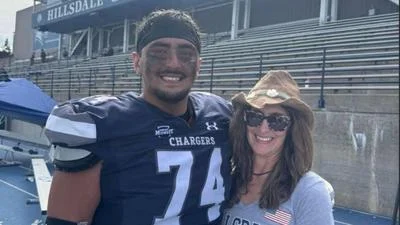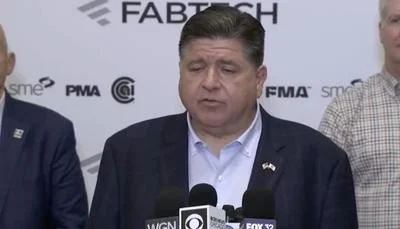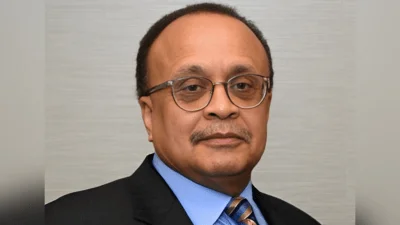Patrick Delfino - ICJIA Board Member | Illinois state's Attorneys Appellate Prosecutor
Patrick Delfino - ICJIA Board Member | Illinois state's Attorneys Appellate Prosecutor
Illinois Criminal Justice Information Authority, Traffic Data Stop Statistical Study Task Force met July 25.
Here are the minutes provided by the task force:
| Task Force Member Attendance | WebEx | Absent |
| [A] Dr. Christopher Donner, Department of Criminal Justice & Criminology
Loyola University Chicago | X | |
| [A] Jack McDevitt, Professor of Criminology and Criminal Justice at Northeastern University; Director of Institute on Race and Justice | X | |
| [B]Tyrone Forman: Professor of Sociology and African American Studies, UIC | X | |
| [C] Major Jody Huffman, #5964 Illinois State Police North Central Patrol Command | X | |
| [D]Stephen Chung, Commander, Chicago Police Department | X | |
| [F]Jim Kaitschuk, Executive Director, Illinois Sheriffs Association | X | |
| [H] Donald "Ike" Hackett, Illinois Fraternal Order of Police | X | |
| [I] Khadine Bennett, Director of Advocacy and Intergovernmental Affairs, ACLU | X | |
| [J]Rev. Ciera Bates-Chamberlain, Executive Director, Live Free Illinois | X | |
| [J] Gregory Chambers - Ill coalition to end permanent Punishments | X | |
| [J] Amy Thompson, Impact for Equity Staff Counsel, Criminal Legal System | X |
Sheriff Brian VanVickle, Ogle County Sheriff’s Office
Anne Fitzgerald, Cook County Sheriff Office
Sean Berberet, Illinois Department of Transportation
ICJIA Staff Present:
Kimberly Atkins, ICJIA, Strategic Project Administrator, Editor
Jacob Derrick, ICJIA Director, Policy Government Affairs
Dawn English, ICJIA Associate General Counsel
Mary Ratliff, ICJIA, Strategic Project Director
Emilee Green, ICJIA Research (Facilitating)
Gowri Kuda-Singappulige, ICJIA Research
Karl Gruschow, ICJIA Research Manager
Minutes by: Kimberly Atkins ICJIA Strategic Project Administrator
I. CALL TO ORDER/ ROLL CALL
• Emilee Green Facilitated the Meeting and called the meeting to order 11:33 A.M. The meeting was called to order and Emilee Green stated meeting was recorded by Kimberly Atkins.
• Call on Counsel: Dawn English to take roll
II. WELCOME AND INTRODUCTIONS
• Dawn English, ICJIA took roll and announced quorum was reached. The meeting was handed back to Facilitator Green
III. CHAIRPERSON NOMINATIONS
• Facilitator Green: Presented Introductions and addressed Chairperson nominations
IV. NEW BUSINESS
• Facilitator Emilee Green- Introduction: The purpose of this task force, as stated by Illinois legislation, ICJIA, in consultation with lawenforcement agencies, community groups, and other experts shall undertake a study to determine the best use of technology to collect, compile, and to analyze traffic and pedestrian stop data.
• Illinois Department of Transportation (IDOT) publishes an annual study that shows police submitted traffic and pedestrian stop data. In partnership with an external consulting agency, the Mountain Whisper Light, an analysis is completed that looks for potential racial bias within these stops. The job as a task force is to review these methods along with the methods that IDOT uses to collect that data in the 1st place. We are to submit a report detailing our findings by March 2025 and every three years after.
• Taskforce Chairperson: This is the first meeting of the taskforce, and we will be electing a chairperson. The elected chairperson will work with ICJIA staff as needed to provide feedback on those meeting agendas. If everyone can provide an introduction, please state your name, your organization, and a sentence about your work. We will start out introductions.
• Khadine Bennett -ACLU-IL- Director of Advocacy and intergovernmental Affairs with the ACLU of Illinois run our non-litigation advocacy work and our organization did the work to work with legislators, to introduce this legislation and make it permanent and then beefing up the creation of the study committee.
• Gregory Chambers -Director of Policy for the Illinois Coalition to end permanent punishments and Illinois Delegate for the people's Coalition for safety and freedom, moving to rebuild and replace the 1994 crime bill.
• Chris Donner-Professor of Criminal Justice and Criminology at Loyola University of Chicago. Work focuses on policing specifically misconduct and reform. Dr. Donner is also a quantitative or statistical researcher and looking forward to working with the task force group.
• Major Jody Huffman- Major with the Illinois State police, in charge of the North Central Patrol region, which extends from Springfield, mostly towards the west side of Illinois.
• Jim Kaitschuk- Illinois Sheriff's Association
• Jack McDevitt- Dr. McDevitt is a faculty member in the School of Criminology and Criminal Justice at Northeastern University in Boston. Dr. McDevitt has extensive experience in racial profiling studies across the country.
• Amy Thompson-Staff Counsel at Impact for Equity Policy Center in Chicago. Counsel Thompson’s work focuses on using the data that's obtained from the study in the service of advocacy around making a more racially equitable traffic safety system. I'm also a member of the sister (oversight) board, the Racial Profiling Prevention and Data Oversight board as well.
• Emilee Green, Facilitator- Facilitator Green thanks members for introductions and requests members to make chairperson nominations prior to next meeting. Direction was provided to email Kimberly Atkins and Dawn English for self-nominations or another member for chairperson. A reminder will be sent from Kimberly Atkins. Nominees will be contacted to make sure they are willing to accept the nomination
V. PRESENTATIONS
• Emilee Green, Facilitator provides roadmap for meeting presentations. First presentation is a review of previous task force findings in the Report: 2020-2021 Illinois Traffic and Pedestrian Stop Data
• Gowri Kuda-Singappulige- Research Analyst colleague will provide second presentation on the quantitative work that ICJI has completed since the last task force. Facilitator Green Shares Screen.
• Presentation 1: Shared with members and online
• Emilee Green: The last gathering of this group was from September 2020 to December 2021 with a final meeting to vote on the report in February 2022. That group met six times on a quarterly basis, and they were set up the exact same way as this one. The group was fully virtual and following Robert's rules of order. This means all 19 recommendations from that group were voted.
• The composition of this group mandated by the legislation, and it has stayed the same. The group is comprised of academics with expertise in both statistics and racial equity; law enforcement representatives from the major organizations in Illinois; representative from the ACLU and five representatives from different community organizations who specialize in civil or human rights or reform work.
• Recommendations 19:
• Category 1: Data Collection Sheet Content for updates and edits.
• 1) updating stop duration from writing the minutes to instead a start and stop time, including vehicle body type, at the time only vehicle make was recorded.
• 2) race/ethnicity categories match the census at the time there was a bit of a mismatch there separating the categories of weapons and drugs on the stop form to be more detailed. Recording whether a firearm specifically was found.
• As well as distinguishing between illegal marijuana versus other drugs, including an arrest outcome on the stop sheet. At the time only citation, written warning, and verbal warning were included, including whether there was body camera footage available.
• And finally, including whether force was used.
• Category 2. focused on measuring racial disparity. To measure this, you typically compare the racial breakdown of drivers stopped to the racial breakdown of drivers in that area. And this estimated population count is often called the benchmark. A benchmark can be calculated for pedestrians as well. So, by comparing the breakdown of pedestrians who have been stopped in a particular area to those who walk around that same area. Now, there are several factors involved with estimating the population benchmark, an expansive topic.
• Category 3: Data Utilization- It was recommended that ICJIA investigate law enforcement feedback and how these studies can be made more informative to their agencies, as well as if there were any barriers to collecting and submitting the data. Another recommendation within this category was how law enforcement themselves maybe able to review their own stop data. Instead of using an external benchmark like the census or crash data, officers with similar assignments could be compared to each other, serving as sort of benchmarks for each other. Often called internal benchmarking and traffic stop literature.
• Category 4: Modification to Public reports. Category four looked at, different analyses that both IDOT or other parties may want to investigate. Again, this included different analyses for disparities by age as well as visualizations of Illinois traffic stop data analysis
• Category 5: Included additional research that the task force felt would be worth examining further, but the group did not have the time during the last set of meetings to discuss these in depth. The 1st was discussing whether additional gender categories should be added to the stop sheets
• Pedestrian Stop Data Use and Collection Task Force Findings. The discussion should be done in consultation with LGBTQ. Second point was brought up by law enforcement representatives. Chicago police department's investigatory stop report policy requires that law enforcement members report nonconsensual that does not involve a frisk and search. The last was updates to the software that the police departments use to capture, record, and submit stop data and funding to address the enactments.
• Chat link for report : https://icjia.illinois.gov/researchhub/articles/2020- 2021-illinois-traffic-and-pedestrian-stop-data-use-and-collection-task force-recommendations
• Gowri Kuda-Singappulige Quantitative Analysis Discussion of Traffic Stops. History of the quantitative analysis: IDOT has been collecting and analyzing traffic pedestrian stop data since 2004. The taskforce recommends alternative analysis methods than what was used previously. Census Bureau population estimates were the current method. Crash-based benchmarks were suggested and distance-based analysis have been incorporated into analysis in recent reports IDOT. ICJIA is exploring complementary and alternative methods to investigate racial disparity in traffic stop data. ICJIA plan has three focus areas data. 1) opportunity for discrimination 2) compare and contrast benchmark tests 3) outcome test to study bias in decision making.
• Veil of Darkness (VOD) Method: This method assumes that racial profiling could be most likely to occur when the police officers can see the race of the driver. Therefore, during daytime when race can be seen, racial bias would show to exist more. VOD findings is that at a state level, white driver are pulled over more during the day, while black and other minority drivers are pulled over more at night. Even though this contradicts the VOD expectations, this may suggest potential racial disparities. At an agency level only, few agencies showed that black drivers were significantly more likely to be stopped during the day compared to night.
• Khadine Bennett ACLU-Illinois- Thanks Ms. Kuda-Singappulige for the presentation. Referencing the day and night, is there a distinction between night and day stopping in calculating what group is more likely to be traveling at night versus day to look at minorities that may work more at night.
• Karl Gruschow – ICJIA is looking at disparity, to figure out where there's bias and systemic issues. We'd have to triangulate everything in the system about what's going on and that what you mentioned is a very clear obvious.
• Jack McDevitt- According to the research the readers may look at the data and abstract from it what they want. Nicely presented with information of the 118 agencies that do not have problems with the people they stop
• Amy Thompson- Thanks Ms. Kuda-Singappulige Gallery for the presentation. This was excellent. It might be helpful for someone to explain the inter twilight period and why that is so significant. We've looked at the darkness study before and it answered many questions about what if there are difference in police shifts, what are people, what if they're pulling people over more, you know, what if more police are staffed in the evening? It answers a lot of questions about the variability of patterns for me, explanation would be helpful.
• Amy Thompson-The second question is, what is the plan for these results for the agencies that have higher ratios? There may be limitations with the study, but is there going to be any effort to communicate with them about the ratios and what that means or may look like?
• Gowri Kuda-Singappulige- Would you like me to explain the inter twilight period for this audience? Day and nighttime drivers might be changing the patterns throughout the day. The daytime patterns would not be the same if we took all the daytime drivers and nighttime drivers. Instead, we pick a time frame, let's say for starting from 05:00 P.M. to 09:00 P.M., that would have within a day that would include both day and nighttime due to the variation of the sun time. As a result, in some months 05:00 P.M. would be dark and in some months 05:00 P.M. be light. If we were to restrict the data set to be in a certain time period, which is called the inter-twilight period, then we would be able to more closely represent the assumptions from the method. This method assumes similar patterns driving in day and nighttime which is a huge assumption.
• Emilee Green-Facilitator – Next Steps Checklist
• Respond to priorities for the six months of meetings
• Completion of Taskforce training (Diversity ethics, harassment)
• Dates for next coming meetings – respond if there are conflicts
• Chairperson Nominations
• Taskforce vacancies for community representatives
• Kimberly Atkins will be in touch about what is needed for training and sending some links out. If you do have additional questions about that, feel free to respond.
VI.PUBLIC COMMENT
The floor was opened the floor for public comment by counsel Dawn English by pressing *6. There was no public comment.
• Khadine Bennett ACLU-Illinois next meeting to talk about the recommendations what if any have been done? It could be a helpful place for us to think about in terms of priorities as well
VII. ADJOURNMENT
• Next Meeting is Monday, August 22, 2024, 11:30am -12:30pm.
• Motion By: Jack McDevitt at 12:32pm
Seconded By: Khadine Bennett
Vote Taken by Dawn English: There were no oppositions, no abstentions, motion carried to adjourn the meeting
https://agency.icjia-api.cloud/uploads/Traffic_Stop_Data_Minutes_7_25_24_KA_DE_GK_v_2_e36da5670b.pdf






 Alerts Sign-up
Alerts Sign-up